Running a successful agricultural business comes with inherent risks. From unpredictable weather events to crop diseases and accidents, farmers face numerous challenges that can significantly impact their production and income. This is where farm insurance plays a crucial role in mitigating these risks and providing financial protection. In this comprehensive guide, we will explore the importance of farm insurance, its eligibility criteria, coverage options, and how it can safeguard your agricultural business in Ontario.
Table of Contents
Understanding Farm Insurance
What is Farm Insurance?
Farm insurance, also known as agricultural insurance, is a vital risk management tool designed to provide financial protection to farmers against potential losses caused by natural perils, such as drought, floods, extreme weather, pests, diseases, and other uncontrollable events. It serves as a safety net for farmers, ensuring their livelihoods and the sustainability of their agricultural businesses.
The Role of Insurance in Farming
Insurance plays a crucial role in the operation of a farm business by mitigating the financial impacts of production losses. Farmers invest significant time, effort, and capital in cultivating crops and raising livestock, making them vulnerable to various risks beyond their control. These risks can lead to decreased yields, crop failure, or loss of livestock, resulting in substantial financial losses. Farm insurance provides a safety net that helps farmers recover from such losses and maintain the stability of their operations.
Eligibility and Coverage
Eligible Crops and Commodities
Farm insurance in Ontario is available for a wide range of crops and commodities. The eligibility criteria may vary depending on the specific agricultural products. Some of the common crops covered by farm insurance include:
- Grains such as wheat, corn, oats, and barley
- Oilseeds
- Potatoes
- Apples
- Sweet corn
- Strawberries
- Fresh market vegetables
- Wild blueberries
- Horticultural crops like lettuce, carrots, and eggplants
It’s essential to consult with your broker to determine which crops and commodities are covered under their farm insurance program.
Types of Coverage
Farm insurance can offer various types of coverage to protect against different risks. These include:
Crop Insurance
Covers losses or damages to crops caused by natural perils, diseases, pests, or adverse weather conditions.
Livestock Insurance
Provides coverage for the loss of livestock due to accidental death, disease outbreaks, theft, or natural disasters.
Property Insurance
Protects farm buildings, equipment, and infrastructure from risks like fire, theft, vandalism, or natural disasters.
Liability Insurance
Covers legal expenses and damages in case of third-party bodily injury or property damage claims related to your farming operations.
Equipment Insurance
Ensures coverage for farm machinery, vehicles, and equipment against theft or damage.
It’s essential to assess your farm’s specific needs and consult with your insurance broker to determine the specific risks associated with your agricultural operation and the appropriate coverage options to protect the important aspects of your farm business.
Benefits of Farm Insurance
Financial Protection
Farm insurance provides vital financial protection for farmers, shielding them from potential losses that could have devastating consequences for their business. In the face of unforeseen events like severe weather conditions, disease outbreaks, or accidents, insurance coverage helps farmers recover their financial investments, ensuring the continuity of their operations.
Risk Mitigation
Farming involves inherent risks, many of which are beyond a farmer’s control. By having farm insurance in place, farmers can mitigate these risks and protect their investment. Insurance coverage helps in managing risks associated with crop production, livestock management, property damage, and liability claims, reducing the potential financial burden on farmers.
Understanding the Insurance Process
Premium Costs
Farm insurance premiums are determined based on various factors, including the type and level of coverage, the value of insured assets, the historical loss data, and the specific risk factors associated with the farm’s location and operations. Premium rates are usually set using actuarial methodologies to ensure a fair and sustainable pricing structure.
Premium Costs
In the event of a loss or damage covered by the farm insurance policy, farmers need to initiate the claim process to receive compensation. The specific claim process may vary depending on the insurance provider and the type of coverage. Farmers are typically required to report the loss promptly, provide supporting documentation, such as photographs, receipts, or expert assessments, and cooperate with the insurance company during the claims investigation.
It’s crucial to understand the claim process outlined in your insurance policy and maintain proper documentation to ensure a smooth and efficient claims settlement.
Choosing the Right Insurance Broker
The Role of an Insurance Broker
When it comes to selecting the right farm insurance coverage, working with an experienced insurance broker can be invaluable. An insurance broker acts as an intermediary between farmers and insurance companies, helping them navigate the complex insurance landscape and find suitable coverage options tailored to their specific needs.
Insurance brokers have in-depth knowledge of the insurance market and can provide expert guidance on policy selection, coverage limits, and risk management strategies. They assess your unique requirements, shop for competitive quotes, and negotiate terms on your behalf, ensuring you receive comprehensive coverage at the best possible price.
Factors to Consider
When choosing an insurance broker for your farm insurance needs, consider the following factors:
Experience and Expertise
Look for brokers with a proven track record in agricultural insurance and a deep understanding of the farming industry's unique risks and requirements.
Range of Insurance Products
Ensure the broker offers a wide range of coverage options from reputable insurance providers, allowing you to choose the most suitable policies for your farm.
Customer Service
Consider the broker's responsiveness, accessibility, and willingness to provide personalized assistance throughout the insurance process.
Reputation and Reviews
Research the broker's reputation in the industry and seek recommendations from other farmers or agricultural associations.
Competitive Pricing
Compare quotes from multiple brokers to ensure you are getting competitive rates without compromising on coverage quality.
By partnering with the right insurance broker, you can gain peace of mind knowing that your farm insurance needs are well-managed, and your agricultural business is protected.
Additional Coverages
Business Continuity Insurance
Also known as Business Interruption insurance, Business Continuity insurance plays a vital role in ensuring business continuity in the event of a significant loss or interruption to farming operations. It provides the necessary financial resources to repair or replace damaged property, compensate for lost income, and cover ongoing expenses during the recovery period. This allows farmers to resume their operations and maintain their livelihoods without significant disruptions.
Health and Disability Insurance
While farm insurance primarily focuses on protecting the farm’s assets and operations, it’s equally important to consider personal insurance coverage for yourself and your employees. Health and disability insurance play a crucial role in safeguarding your well-being and that of your farm’s workforce.
Health insurance provides coverage for medical expenses, ensuring access to quality healthcare services. Disability insurance, on the other hand, offers financial protection in the event of an injury or illness that prevents you from working. It replaces a portion of your income during the disability period, allowing you to meet your financial obligations and maintain your standard of living.
Preventing Losses
Risk Management Practices
While farm insurance provides essential protection against potential losses, implementing proactive risk management practices can help minimize the occurrence and impact of these risks. Some risk management strategies to consider include:
- Developing and implementing comprehensive farm safety protocols to prevent accidents and injuries.
- Utilizing advanced weather forecasting tools to monitor and mitigate weather-related risks.
- Implementing integrated pest management practices to minimize the impact of pests and diseases on crops.
- Investing in proper maintenance and regular inspections of farm equipment, buildings, and infrastructure.
- Diversifying crops and livestock to reduce the reliance on a single commodity and spread the risk.
By adopting effective risk management practices, farmers can reduce the likelihood and severity of losses, thereby optimizing their insurance coverage and protecting their agricultural business.
Crop Protection Strategies
In addition to farm insurance, farmers can implement various crop protection strategies to safeguard their harvests. These strategies include:
- Using certified and disease-resistant seed varieties that are better suited to local conditions.
- Implementing proper irrigation and drainage systems to manage water-related risks.
- Applying integrated pest management techniques to control pests and minimize the use of chemical pesticides.
- Employing precision agriculture technologies to optimize fertilizer and pesticide applications, improving crop health and yield.
- Monitoring and early detection of plant diseases and promptly implementing appropriate control measures.
By integrating these crop protection strategies into their farming practices, farmers can enhance their overall risk management efforts and reduce the likelihood of crop losses.
Conclusion
Farm insurance plays an integral role in the success and sustainability of agricultural businesses in Ontario. It provides vital financial protection against production losses, mitigates risks, and ensures business continuity in the face of unforeseen events. By understanding the eligibility criteria, coverage options, and the insurance process, farmers can make informed decisions to safeguard their operations effectively.
Partnering with a reputable insurance broker, such as McLean & Dickey Insurance, can further enhance the farm insurance experience, ensuring access to comprehensive coverage tailored to the unique needs of the agricultural industry.
With the right farm insurance coverage in place, farmers can focus on their core operations, knowing that they are protected against potential losses and equipped to overcome any challenges that come their way.




